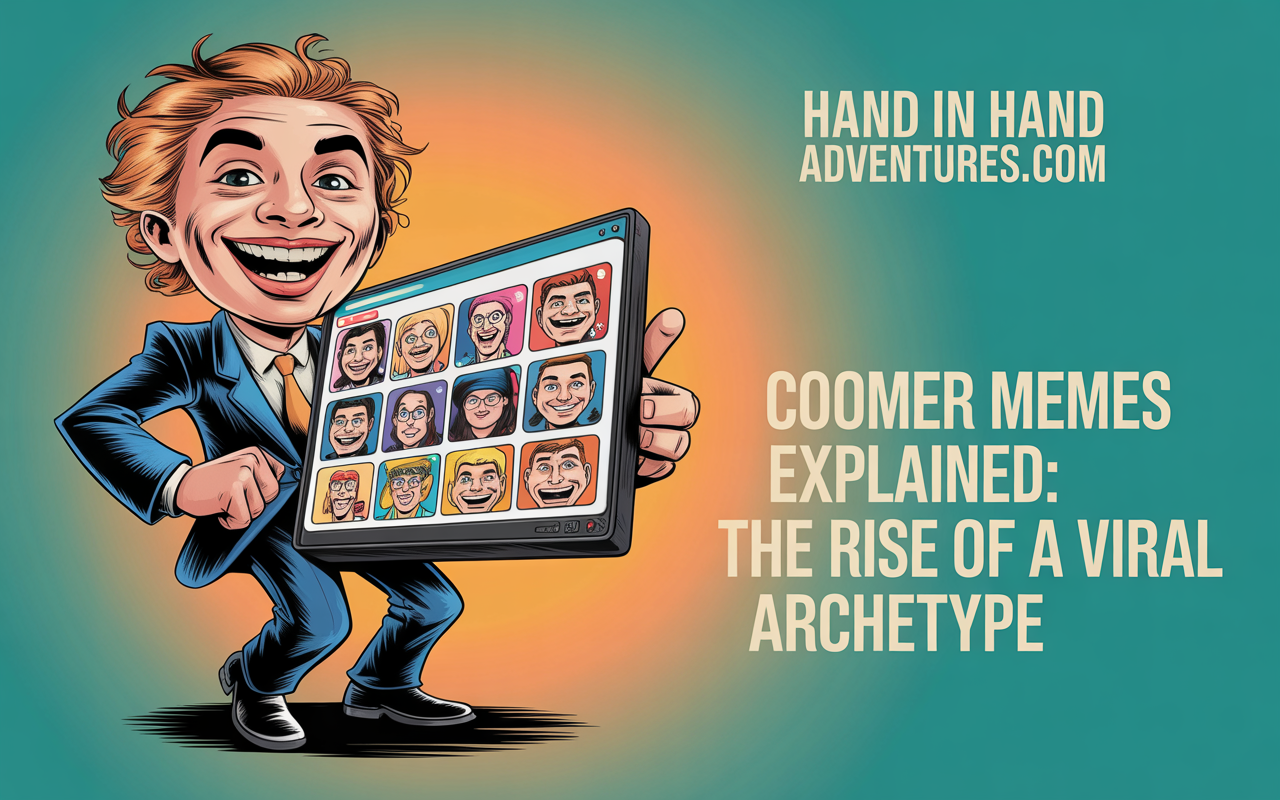Coomer memes have taken the internet by storm, captivating audiences with their unique blend of humor and social commentary. If you’ve spent any time online in recent years, chances are you’ve stumbled across this peculiar archetype. But what exactly is a Coomer? And why has it become such a viral sensation? As we dive into the world of Coomer memes, you’ll discover not just the quirky characteristics that define this phenomenon but also its cultural significance and the controversies it sparks. Buckle up for a journey through meme culture that will leave you both entertained and enlightened!
What is a Coomer?
A Coomer is a caricature that embodies an unhealthy obsession with adult content and the digital world. This archetype often represents individuals who are consumed by their habits, leading to a life dominated by indulgence and detachment from reality.
Visually, Coomers are typically depicted as disheveled or socially awkward figures, often shown in front of glowing screens. The imagery highlights their excessive consumption patterns and lack of motivation to engage with the outside world.
The term originated from internet slang but quickly evolved into a meme format that resonates with many online communities. It captures both humor and critique of modern lifestyle choices.
In essence, a Coomer symbolizes more than just someone who enjoys adult entertainment; it reflects deeper societal issues surrounding addiction, isolation, and the impact of technology on human behavior.
The Origin of Coomer Memes
Coomer memes emerged from the depths of online culture, particularly within forums like 4chan and Reddit. These platforms are known for their unfiltered humor and edgy content, making them fertile ground for unique archetypes.
The character “Coomer” first appeared in a thread about addiction to adult content. This fictional persona quickly gained notoriety due to his exaggerated traits—most notably an obsession with self-pleasure. As images and jokes circulated, Coomer became synonymous with a cautionary tale about excess.
Memes often depict him as socially awkward or detached from reality, highlighting modern struggles related to technology and intimacy. The absurdity of the portrayal resonated widely, transforming Coomer into a relatable figure for many users grappling with similar issues.
As these memes spread across social media platforms like Twitter and Instagram, they evolved into various formats—each iteration adding layers to the original concept while retaining its core essence.
The Characteristics of a Coomer
Coomers are often depicted as individuals who struggle with excessive consumption of adult content. This stereotype paints them as being overly fixated on sexual gratification.
They typically exhibit a lack of motivation in various aspects of life. Hobbies and personal goals take a backseat to their compulsive habits. Social interactions may also suffer, leading to isolation.
Physically, Coomers might be portrayed with unkempt appearances—think messy hair or casual attire that suggests neglect. Their environments tend to reflect this too, filled with clutter rather than organization.
Emotionally, there’s an underlying sense of despair or frustration. Many coomers seem aware of their situation yet feel trapped by it.
This complex combination makes the Coomer archetype both relatable and disconcerting for many online users. It serves as a cautionary tale about modern temptations and distractions that can lead one astray from healthier pursuits.
Why Has the Coomer Meme Become so Popular?
The Coomer meme has struck a chord in digital culture. Its rise can be attributed to the relatability of its archetype. Many people find humor in the exaggerated portrayal of obsessive behavior.
Social media platforms have played a crucial role in spreading this meme. The visuals are simple yet impactful, making them easily shareable. Users enjoy adding their own twists and variations, creating a sense of community around it.
Furthermore, the Coomer represents modern anxieties about technology and addiction. As more individuals grapple with online habits, they see themselves reflected in these memes.
This blend of humor and social commentary resonates deeply with millennials and Gen Z alike. The combination allows for both laughter and introspection while navigating today’s fast-paced world.
Controversies Surrounding the Coomer Meme
The Coomer meme has sparked significant debate online. Critics argue it promotes negative stereotypes about certain individuals, particularly men. This depiction can lead to harmful generalizations that overlook the complexities of personal experiences.
Furthermore, some believe the meme trivializes mental health issues related to addiction and compulsive behaviors. It’s not just a joke for everyone; it resonates with real struggles faced by many.
On social media platforms, discussions often devolve into heated arguments. Supporters defend its humorous angle while detractors advocate for sensitivity towards those affected by similar challenges.
Additionally, as memes evolve quickly in internet culture, they sometimes lose their original intent. This transformation can fuel misunderstandings and further controversy surrounding what was once meant as harmless fun. The nuance behind these jokes can be easily overlooked in fast-paced environments like Twitter or Reddit.
Impact of Coomer Memes on Society
Coomer memes have infiltrated online culture, creating a unique lens through which we view modern issues. They highlight the struggles of addiction and obsessive behavior in a humorous yet pointed manner.
This archetype resonates with many who feel overwhelmed by societal pressures. The exaggerated portrayal taps into shared experiences, making it relatable to audiences across different demographics.
On social media platforms, Coomer memes serve as both entertainment and commentary. They spark discussions about mental health, relationships, and self-awareness. Some users find solace in humor amidst their challenges.
However, this meme-driven dialogue can also perpetuate stereotypes. It risks trivializing serious topics while reinforcing negative imagery associated with compulsive behaviors.
Coomer memes reflect our collective anxieties around technology and intimacy. Their rise reveals how comedy can be a vessel for deeper conversations about personal struggles and societal expectations.
Conclusion
The Coomer meme phenomenon has taken the internet by storm. Its roots can be traced back to a blend of humor, social commentary, and the complexities of modern life. As this archetype continues to evolve, it reflects both the struggles and absurdities faced by many in today’s society.
With its unique characteristics—such as a penchant for self-deprecation and relatable experiences—the Coomer serves as both a cautionary tale and an entertaining figure. The popularity of these memes lies not just in their humor but also in their ability to resonate with audiences grappling with similar issues.
While some may criticize the Coomer meme for promoting negative stereotypes or unhealthy habits, it’s important to recognize its role in sparking conversations about mental health, addiction, and societal pressures. These discussions are crucial for understanding our collective experiences.
Coomer memes have undeniably left an imprint on online culture. They push boundaries while providing insight into human behavior in an increasingly digital age. Whether you find them amusing or troubling, one thing is clear: they aren’t going away anytime soon.

